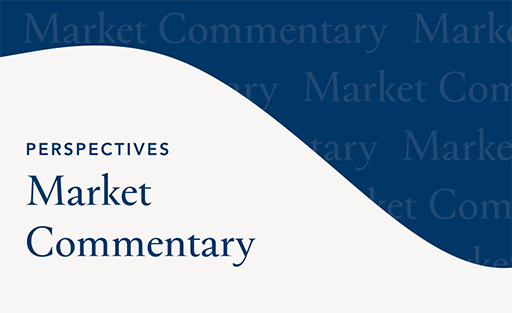Message from the CIO: Tariffs and the Market Sell-off
The following message was originally distributed to clients on April 4, 2025.
Yesterday, the President’s “Liberation Day” tariffs sparked the stock market’s worst trading day since 2020. That volatility could continue.
In the fog of bad news, our reflex is to look to expert predictions. It gives us the illusion of control. But time and time again, the experts have proven to be bad forecasters. Our recommendation is to instead lean on history: the stock market goes through many bumps in the road but rewards you over time. For those with a long time horizon and a disciplined process, stay the course.
Tariffs are generally viewed by economists as bad. They impede free trade, increase the cost of goods for families and businesses alike, create inefficiencies (e.g., propping up uncompetitive businesses while harming good ones), and discourage investment (we’re naturally reluctant to put money towards the future if that future is murky).
Even so, the administration has articulated a rationale for enacting tariffs: to bring manufacturing back to the U.S., reverse trade deficits, improve our access to foreign markets, and reduce our dependence on foreign countries for national security reasons.
We’ve learned that this administration is one to take seriously but not literally. The President’s policies can change from moment to moment. Some possible outcomes from here (without any real ability to handicap their odds):
- A softer stance. Many of the new tariffs may be rolled back as our trade partners reduce their own tariffs or negotiate with our administration.
- Escalation. The administration may ramp tariffs up even further in response to retaliation. (Let’s hope not.)
- The onset of recession. The odds have increased, if only because high levels of uncertainty discourage spending and investment. Nobody roots for recessions but (1) they come to pass, sometimes quickly, and (2) as a natural part of the economic cycle, they trigger a reprioritization of capital towards more productive uses, sowing the seeds for future growth.
Understanding that the markets can take a heavy emotional toll on investors, we thought it might be helpful to remind you of key investment principles.
The first is that a stock’s price tends to fluctuate more dramatically than the actual value of the underlying company. Do not mistake a difficult stretch in the markets with real, permanent loss of wealth. Second, success in investing depends more on your behavior than how intelligent you are. Be patient, stick to your plan, and don’t try to time the market – it’s a fool’s errand.
That the market has sold off this year is not itself surprising. Broadly speaking, stocks – particularly those tied to technology and AI themes – entered the year trading at high valuations. Those high expectations present risk. That is, whether due to tariff news or some other negative development, it was not going to take much to unsettle the market’s sunny disposition. Should the volatility continue, we stand ready to take advantage of any opportunities presented to us.
Please reach out if you have any questions about your portfolio or our views on the current investment environment. We’re here to support you.
The above information is for educational purposes and should not be considered a recommendation or investment advice. Investing in securities can result in loss of capital. Past performance is no guarantee of future performance.






